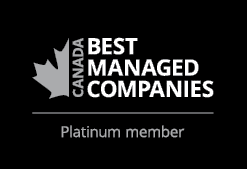Following simple boating best practices can help keep you, your boat, and your passengers safe when enjoying the open water.
Boating basics
Licensing. A boat licence is mandatory for boats with one or more motors adding up to at least 7.5 kW (10 hp) and dinghies or tenders aboard or towed behind. A pleasure craft licence is valid for ten years. It gives your boat a unique licence number, allowing Search and Rescue personnel to access your information in an emergency. A licence can provide added peace of mind while on the water, so you may choose to obtain one even if you are not required to.
Registration. In addition to a boat licence, registering your boat may be necessary and is recommended if you plan to operate it outside Canada. Registration is proof of ownership, which is required to cross international borders and also gives you:
- The right to fly the Canadian flag
- A unique name and official number for your boat
- The right to use your boat as security for a marine mortgage
To learn more about licensing and registering your boat, visit Transport Canada's website.
Proof of competency. In 1999, Canadian pleasure craft operation rules were changed to ensure boating safety. The most significant change stipulates that anyone operating a motorized craft for recreational purposes must hold documented proof of competency, the most common form of which is a Pleasure Craft Operator Card (PCOC). Learn more about obtaining a PCOC and other acceptable proof of competency options on the Transport Canada website.
Insurance. Small boats, like canoes or other un-motorized boats, are typically covered under the personal property portion of your homeowner's insurance policy. A larger, motorized boat will need a separate boat insurance policy. A typical policy is similar to a car insurance policy and is designed to protect your boat, motor, equipment, and passengers should an accident occur.
Get the right coverage so you can focus on that next adventure.
Before setting out
Check the weather. Weather plays a significant role in water safety and can change quickly. Check the forecast before departing and regularly when out. Environment Canada offers marine forecasts, including wind speed and direction, temperature, and visibility, that you can access online or through marine radio.
Pack your gear. Your best protection is a lifejacket or personal floatation device (PFD). Ensure you have enough PFDs for each person on board, correctly sized and in good condition. Your safety gear should also include an emergency kit with:
- Sound signalling device
- Watertight flashlight
- Flares
- Lights if you will be out after dark
- Compass
- Fire extinguisher
Fuel up. Ensure your boat has enough fuel to complete the journey. Be sure you know your fuel tank's capacity and how much fuel your trip will use. Plan out refuelling stops, especially on longer trips. Follow all posted safety instructions provided by your fuel supplier – leaking or spilled fuel is an environmental and fire hazard.
Make and file a sailing plan. Even if you only go out for a few hours, leave a sailing plan with someone you trust, outlining your planned route and boat description. If you don't return within a reasonable timeframe, they should contact the Rescue Coordination Centre. If you are heading out on a multi-day trip, file a daily position report to keep others up to date on your location.
Inspect your boat. Look for cracks in the hull, hoses, or lines, and check all fluid levels. Charge your battery and check the fuel level.
On the water
Be aware of your surroundings. Always watch for others on the water and avoid larger vessels. Familiarize yourself with what a diver-down flag looks like. If you decide to dive from your boat, also display these flags. Give divers plenty of room by keeping your boat at least 100 m away. If that's not possible, slow down as much as possible, move ahead cautiously, and stay clear of the vessel and diving site. Also, watch the sky for aircraft, especially seaplanes. If you see one, give plenty of space for landing or taking off.
Choose your speed wisely. Consider visibility, wind and water conditions, other vessels and hazards like rocks and trees. Be aware of how your wake may affect your surroundings. A large wake could cause a drowning risk for swimmers and damage docks and shorelines. Slow down when boating near shore.
Stay sober. Being impaired while operating a boat is illegal and dangerous. Impaired boating is considered impaired driving under the Criminal Code of Canada. Additionally, in Ontario, penalties carry over to your driver's licence, and a first-time impaired boating conviction could result in a one-year suspension of your driver's licence. You are responsible for all on board and others using the water when you operate a boat.
Docking your boat
Secure your boat. In the summertime, it's common to dock your boat at a marina. Try to dock at a marina with standpipes, fire extinguishers, good lighting, surveillance cameras, and security measures to protect your boat when it's unattended.
- Use forward and reverse at idle speed when docking and moving your boat near the marina
- Have bumpers, mooring lines, and boat hooks ready before docking
- Keep all body parts in the boat until the boat is stopped
- Tie the line holding the boat against the wind first when docking
Cowan is proud to be one of Canada's most recognized marine pleasure craft insurance providers. We partner with CPS-ECP to provide exclusive coverage to its members. Learn more about how you can save as a CPS-ECP member.

-min.jpg?width=400&name=MFA_Blog%20(1)-min.jpg)
-min.jpg?width=400&name=AJ%20Feltis%20(1)-min.jpg)
-min.jpg?width=400&name=Healthy_Workplace_Blog%20(1)-min.jpg)

